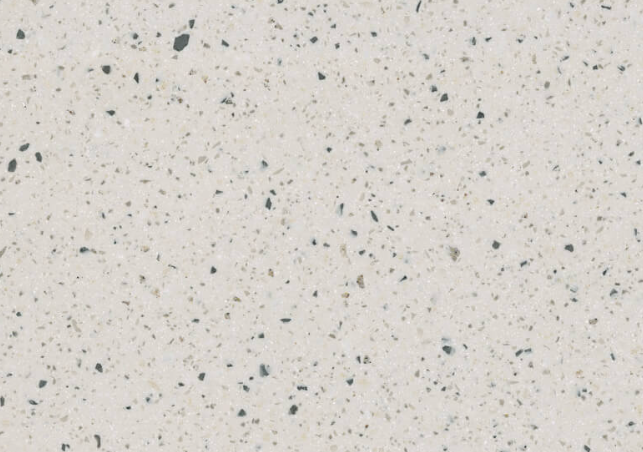
| Property | Typical Value |
|---|---|
| Composition | Acrylic resin (~38%) + ATH (~59%) + pigments/additives |
| Sheet Thickness | 6 mm, 12 mm (sheet size up to 3,660 × 760 mm) |
| Density | 1.5–1.8 kg/dm³ |
| Barcol Hardness | 55–70 |
| Rockwell M Hardness | > 85 |
| Flexural Strength | 30–60 N/mm² |
| Tensile Strength | 25–60 N/mm² |
| Modulus of Elasticity (E) | 5,000–9,000 N/mm² |
| Linear Thermal Expansion Coefficient | ~3.2–3.9×10⁻⁵ mm/m·°C |
| Impact Resistance | No cracking with ball drop test |
| Heat Resistance (Dry) | Up to 100–110 °C (requires protection under hot items) |
| Water Absorption | < 0.04 % |
| Chemical Resistance | Grade C4 (resistant to aggressive chemicals) |
| Fungal/Bacterial Resistance | No growth |
| Food Contact Safe | Certified (NSF/ANSI compliance) |
| Appearance & Workability | Non-porous, seamless, repairable, thermoformable; translucent back-lighting possible |
Solid Surface is a synthetic material composed mainly of acrylic resin and aluminum trihydrate (ATH), offering excellent durability, non-porous structure, and seamless appearance. It is widely used in both residential and commercial spaces for:
-
Kitchen countertops and vanity tops
-
Reception desks, wall claddings, and integrated sinks
-
Hygienic environments like hospitals and laboratories
Key advantages include:
-
Waterproof & stain-resistant
-
Repairable & thermoformable (can be molded into curves)
-
Resistant to mold, bacteria, and harsh chemicals
-
Food-safe (NSF/ANSI certified)
-
Available in various colors, some translucent for backlighting effects
Thanks to its easy maintenance, hygienic qualities, and aesthetic flexibility, Solid Surface is ideal for modern interior design and high-use environments.

 en
en
 Tiếng việt
Tiếng việt
 English
English






